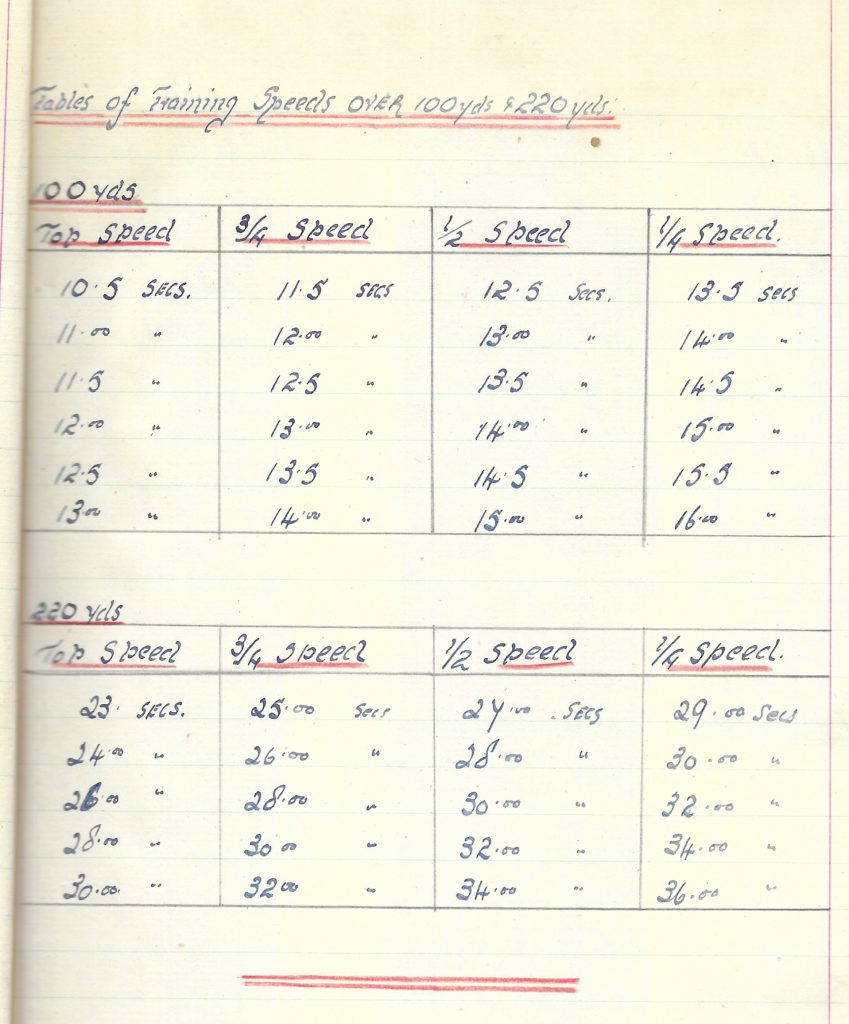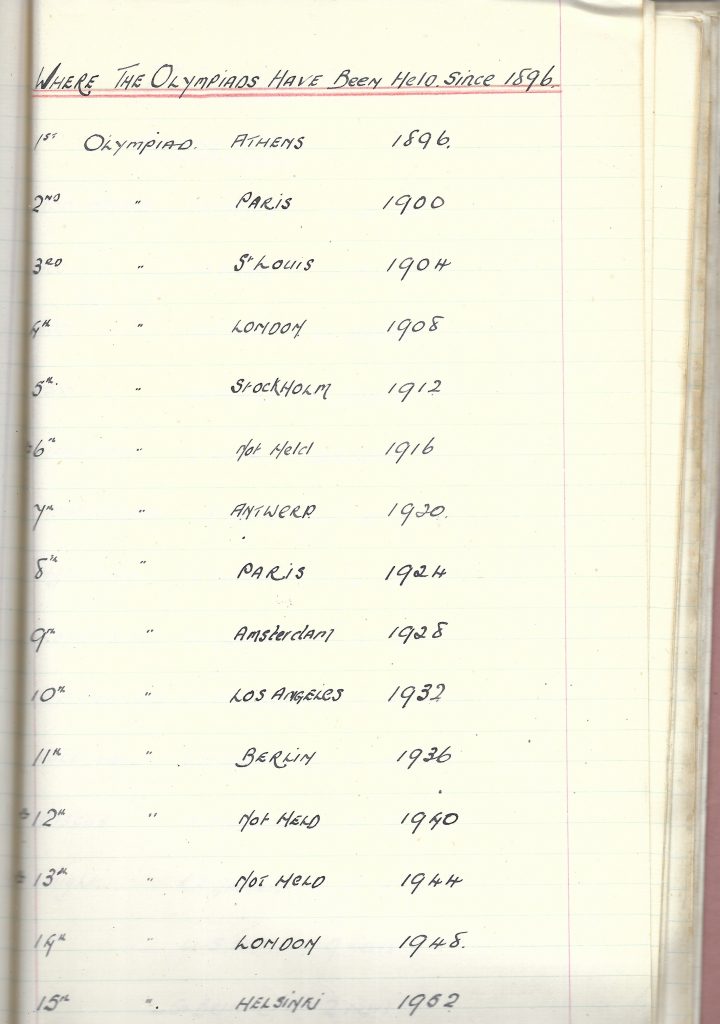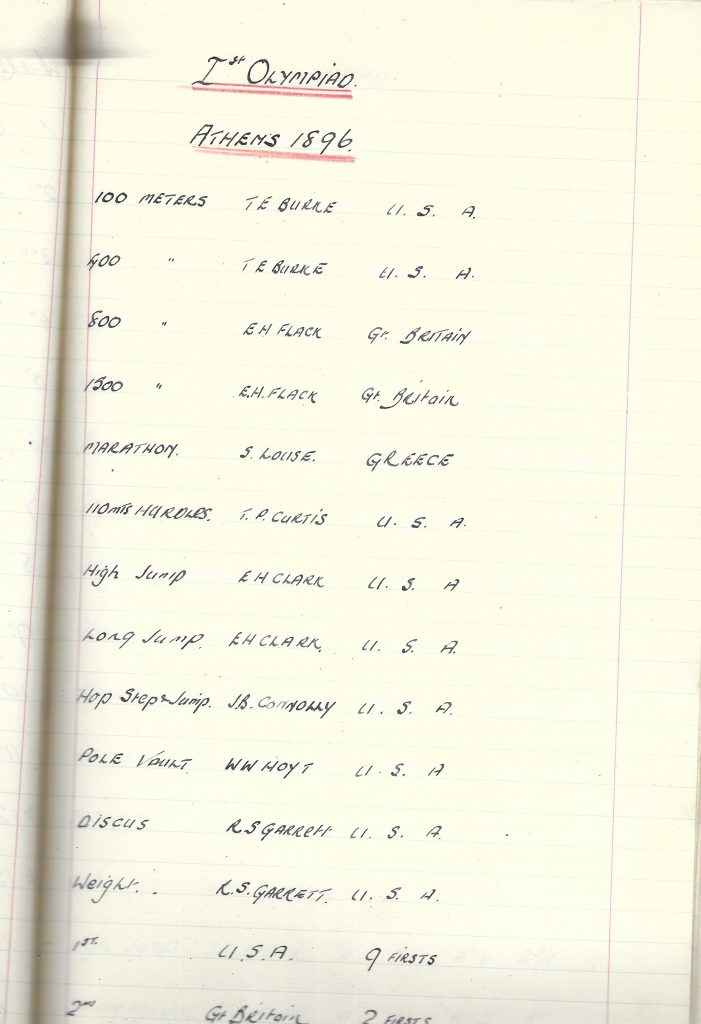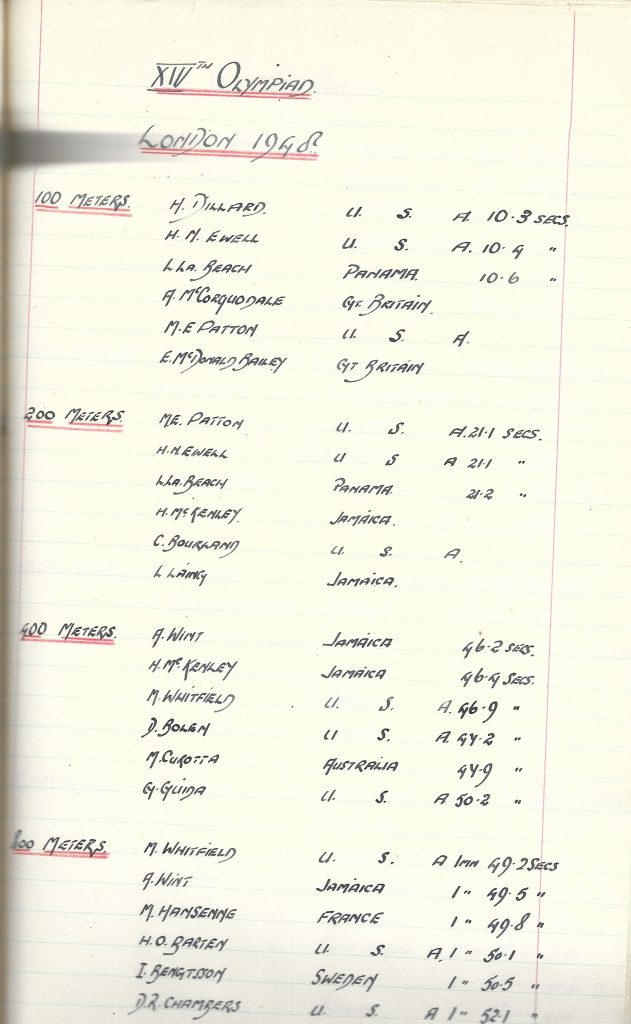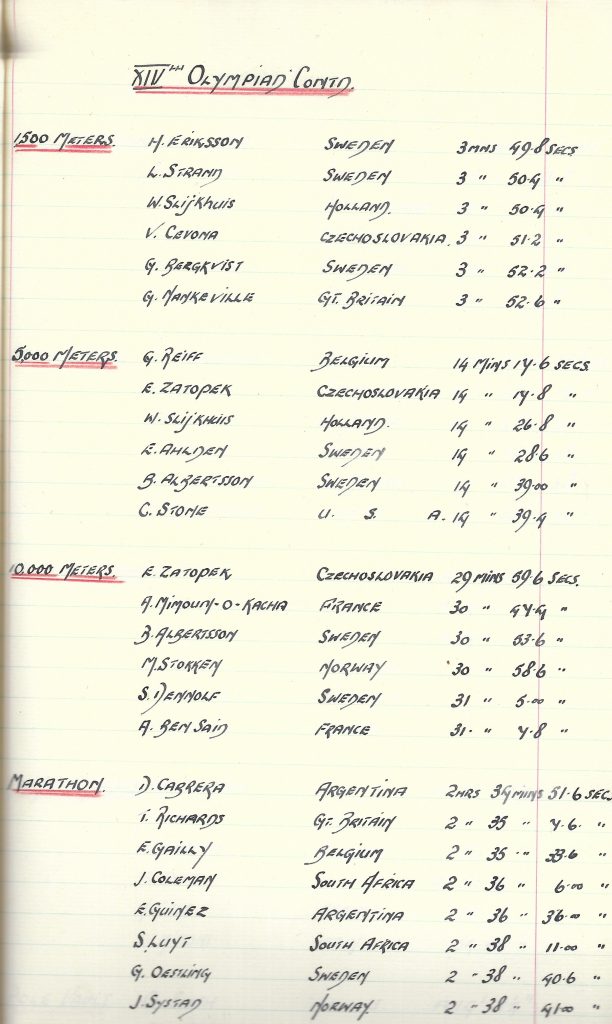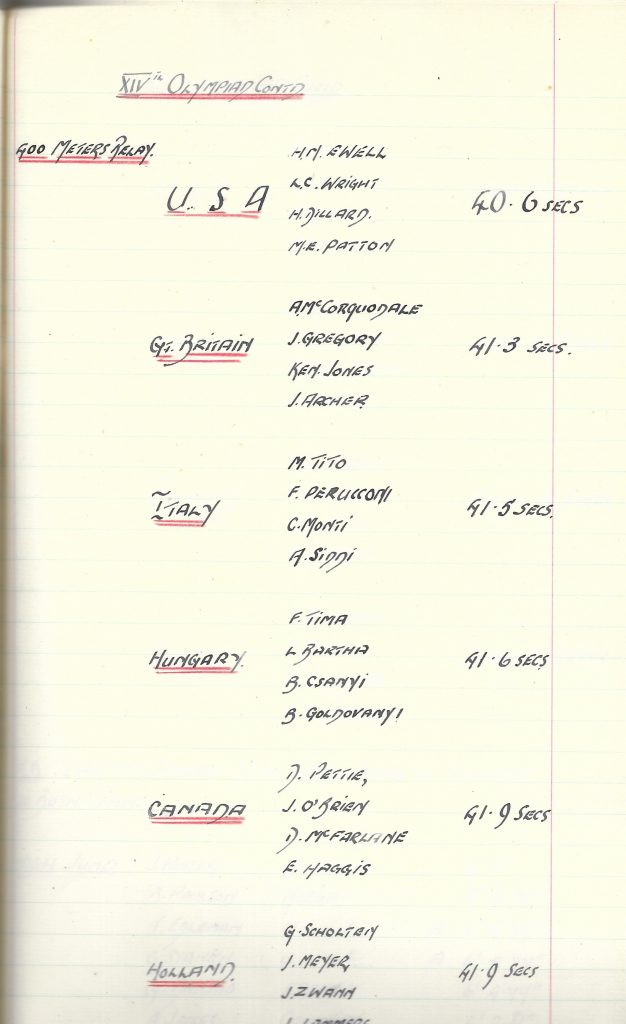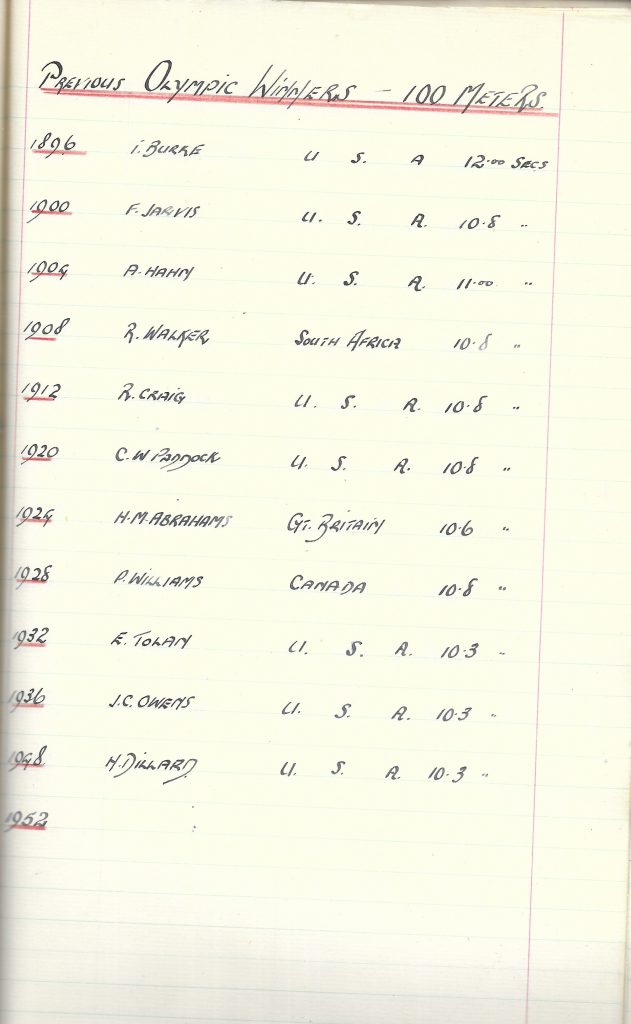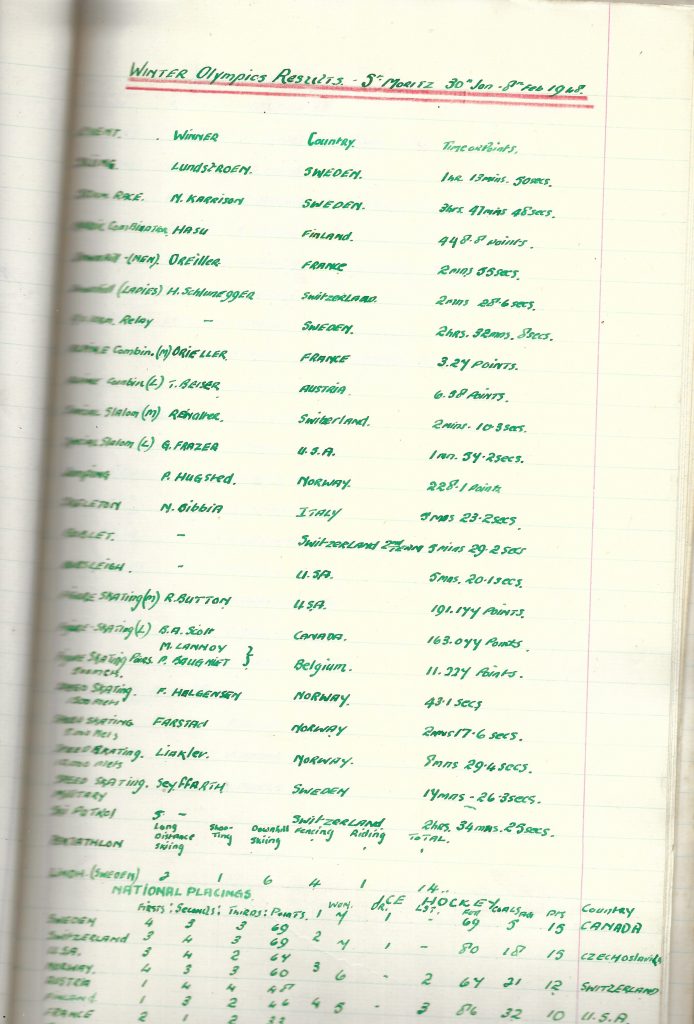A question often asked of runners is whether they have any family background in the sport. John Brown had such a link because his father was a member of Maryhill Harriers. John may well have inherited his attention to detail from his father too. Most runners keep a training and racing diary, some keep a scrapbook – John’s father did both. We are glad that John kept the diary because it tells us a lot about the time in which it was written. No computer printer, just hand written – but look at the handwriting; well, it’s more calligraphy than handwriting. I don’t know of any of my contemporaries who could spend so much time writing out the detail of the sport that he so obviously loved. We’ll start at home with training speeds noted down – he was a sprinter so that was where his attention was. His pride in his craftsmanship is obvious from the writing and the spacing.
His career went into the 1950’s when all the newspapers covered all sports. Football at Wembley as well as Hampden, cricket between England and Australia, world championship boxing and, as far as athletics was concerned, the Olympic Games were covered at great length. For a man like John’s father, the statistics were meat and drink. At a time when there was no TV to distract people, when training was not a seven day affair, the statistics and results were focused upon. The scrapbook contains all the results from all the Olympics from 1896 through to 1948. First of all we have the venues for the various Olympiads.
The results of the 1896 Games in Athens was first –
The ‘biggest of the big’ was of course when they came to London. It was after the War, a time when Scots, English, Irish, Welsh all served in the same command, shared billets and grumbled about postings and Great Britain was both ‘Great’ (we had won the War after all) and Britain. There was barely any talk of independence for Scotland. The British team was ‘our team’. John really went to town on the results.
The immediate difference spotted is that ALL finishers in the finals are listed, with times. The page is of course beautifully laid out.
There was a total of five pages devoted to the London Olympics. They covered all events, nut just sprinting or not even just running – all the field events were covered. Then looking for records he came up with previous winners of his own events, the 100 and 220 yards. The 100 yards is reproduced below.
The man clearly loved his sport. But he loved sport in general – note this page: he not only covered endurance running and field events as well as his own sport, but to spread to the Olympic movement as far as the Winter Olympics to this extent was simply unique in my experience
…
